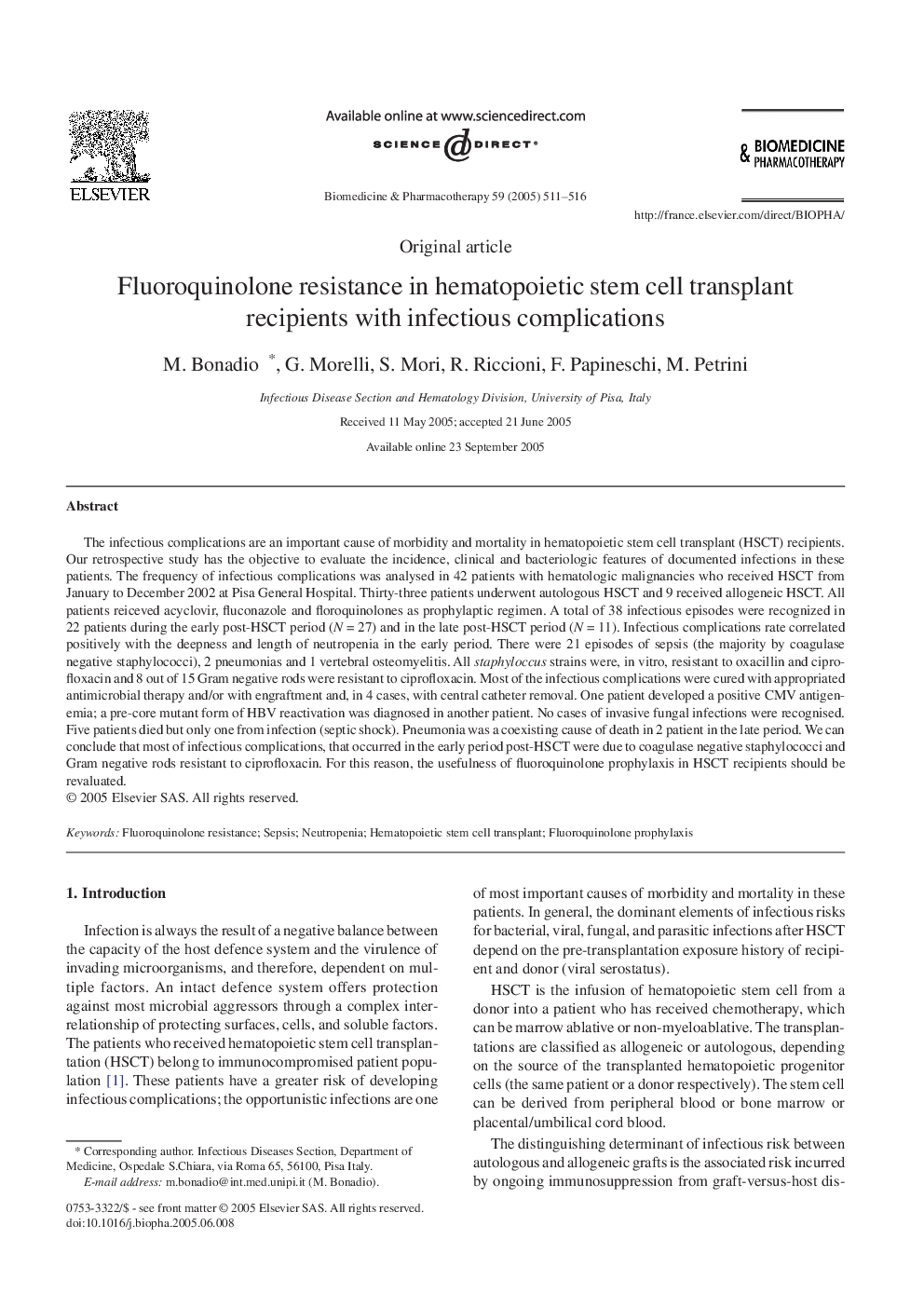| Article ID | Journal | Published Year | Pages | File Type |
|---|---|---|---|---|
| 9004543 | Biomedicine & Pharmacotherapy | 2005 | 6 Pages |
Abstract
The infectious complications are an important cause of morbidity and mortality in hematopoietic stem cell transplant (HSCT) recipients. Our retrospective study has the objective to evaluate the incidence, clinical and bacteriologic features of documented infections in these patients. The frequency of infectious complications was analysed in 42 patients with hematologic malignancies who received HSCT from January to December 2002 at Pisa General Hospital. Thirty-three patients underwent autologous HSCT and 9 received allogeneic HSCT. All patients reiceved acyclovir, fluconazole and floroquinolones as prophylaptic regimen. A total of 38 infectious episodes were recognized in 22 patients during the early post-HSCT period (NÂ =Â 27) and in the late post-HSCT period (NÂ =Â 11). Infectious complications rate correlated positively with the deepness and length of neutropenia in the early period. There were 21 episodes of sepsis (the majority by coagulase negative staphylococci), 2 pneumonias and 1 vertebral osteomyelitis. All staphyloccus strains were, in vitro, resistant to oxacillin and ciprofloxacin and 8 out of 15 Gram negative rods were resistant to ciprofloxacin. Most of the infectious complications were cured with appropriated antimicrobial therapy and/or with engraftment and, in 4 cases, with central catheter removal. One patient developed a positive CMV antigenemia; a pre-core mutant form of HBV reactivation was diagnosed in another patient. No cases of invasive fungal infections were recognised. Five patients died but only one from infection (septic shock). Pneumonia was a coexisting cause of death in 2 patient in the late period. We can conclude that most of infectious complications, that occurred in the early period post-HSCT were due to coagulase negative staphylococci and Gram negative rods resistant to ciprofloxacin. For this reason, the usefulness of fluoroquinolone prophylaxis in HSCT recipients should be revaluated.
Related Topics
Health Sciences
Medicine and Dentistry
Oncology
Authors
M. Bonadio, G. Morelli, S. Mori, R. Riccioni, F. Papineschi, M. Petrini,
